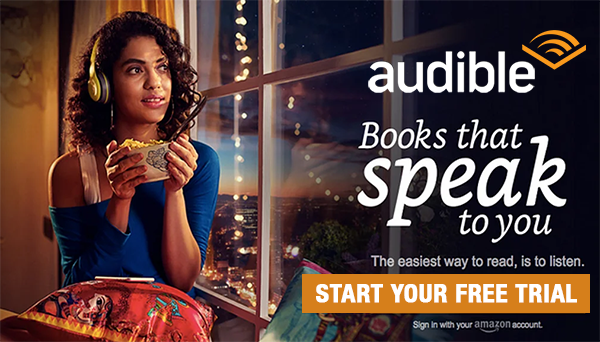4 Books that Have Helped Me Cure and Overcome My Social Media Addiction
Be mindful of the time you spend on social media and balance it with other activities.
Do you often wonder why it is so hard to avoid social media? If social media channels weren’t available, would we be better at socialization skills? How can we break from the nightmare of social media addiction? I have pondered these questions for a significant period since I realized social media was eating away my time.
I was addicted to social media, and it was hard to stay away from my smartphone for a minute. I used to spend most of the time swiping Tiktok videos, Instagram reels, and Facebook posts. I couldn’t focus on the important stuff and do anything productive.
Like me, you may be undergoing all this. The books on social media addiction below have been great in helping me to overcome this disease that was slowly creeping into my life. They have made me focus more on the better and more valuable things in my life. I bet they will be helpful to you too.
Quick Facts About Social Media Addiction
- We spend 2.2 hours per day on social media (and this number increases year by year)
- We use 7.5 social media platforms on average in one month
- 30% of our Facebook feed is paid promotion, and Meta (formerly Facebook) makes $135.9 billion per year (2022)
- Not being on social media causes the fear among young adults, almost 34% of them feel they miss something (CBS)
- 1 of 3 divorces is caused by social media, as a result of online affairs (McKinley Irvin)
- 40% of young adults have poor sleep quality because of social media addiction (Sleep Foundation)
The Good and the Bad
We almost all have some social media account or have used social media platforms, right? In its way, it positively impacts life. Initially, social media was meant for sharing meaningful posts. But now, it has turned into an information black hole and brought about a tangled mess—the worst of them all being addiction.
In the Netflix documentary The Social Dilemma we learn that Facebook intentionally created an AI based algorithm to keep our eyes on Facebook mobile feed. Although I have some expertise in AI, it still sounds really scary that Facebook's algorithm checks thousands of data points per user to profile them what they like and what posts keep them in front of the feed.

Social media addiction is like using drugs, social media becomes an addiction if you have difficulty staying away. Before you know it, it is too late. You find yourself giving more time to social media scrolling and engagement. Other than doing other productive things. But why?
Being online sometimes feels more powerful for developing virtual friends than real friends. Or, you may want to keep up with the current trends to avoid FOMO. These things may make you feel as if you are living for the moment whenever you pick up your gadget.
Oblivious of time, you get glued to the screen, whether sending work emails, eating dinner with your loved ones or during an important meeting. Miserable right? But that is not even where it ends.
You may find yourself ignoring and failing at most of your essential duties. What’s worse, this obsessive use of social media sometimes becomes depressing, especially when you can’t relate to anyone or see everyone going on with their lives while yours is at a standstill.
However, if you keenly analyze and understand the impact, you may resolve to change. Now, you’re asking why should I read these books for my social media addiction? Let’s get to the bottom of this to find out your answer.
What Are The Most Eye Opening Books on Social Media Addiction?
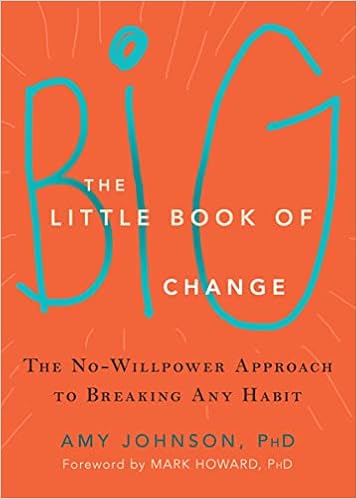
The Little Book of Change, by Amy Johnson (2016)
This book helped me shift my perspective and appreciate the impacts of small social media changes on my day-to-day life. I could spiral about it all day. Amy shows you that when it comes to conquering social media addiction, little changes can make a huge difference.
The Little Book of Change illustrates how you can rewire your brain and overcome bad social media habits for good. I love that it emphasizes that you have the power to change your habits which I consider a fascinating perspective.
I highly appreciated how the book has a different point of view on thoughts and spirituality. It shows you that you are not your social media habits, and they do not define you. You will significantly resonate with this idea if you constantly beat yourself up about the social media dilemma.
From this book, you will realize that social media is simply a reversible brain-wiring. Putting an end to feeding the source is how you can take charge of the addiction; it all starts with taking small steps. That thought of finding out what your virtual friend ate for lunch is just vaporous and a passing cloud that you can stop. Your thoughts can't force you to act, so practice pausing the actions that make you want to go on and on. Before you know it, change will come.
Overcoming social media addiction is not an overnight miracle. As you put the breaks on social media urges, Amy recommends being patient with yourself and more willing to do the work.
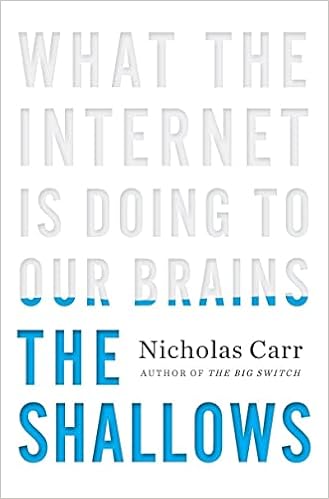
The Shallows, by Nicholas Carr (2011)
Nicholas Carr is known for posting ‘Google is making us stupid’ on the Atlantic Monthly. His point led to a heated discussion on the impact of the internet on our human brain. This was his primary motivation for writing The Shallows.
In this profound and detailed book, Carr explores the intellectual and cultural effects of the internet on human behavior, including engaging and reading books online. I found this thought intriguing and interesting. Carr argues how a vast volume of messages and web design keep away our deep thoughts and make us rapidly respond to posts or information. As a result, we lose our ability to be deep thinkers.
Do you regret some rapid comments on a post or story due to certain instantaneous emotions? Most of the time, it is because we don’t pause and think critically before posting. We often don’t realize that the comments that follow, whether positive or negative are what slowly build into social media addiction. You will just want to see what someone said or how they reacted constantly. Even if you delete the post, it might just come up later, causing you to go back again to the cycle.
This book has thoughts and facts, and I highly recommend it if you constantly rely on technology and social media in your life. That urge to check how something is done, even if unnecessary, can potentially build addiction. Your intention might be correct, but a simple notification may make you remain obsessively engaged on social media.
Reading this book was informative and challenging to me on the impacts of the internet, both positive and negative effects. In the end, it gave me an insight into how to manage social media addiction for a life-changing experience.
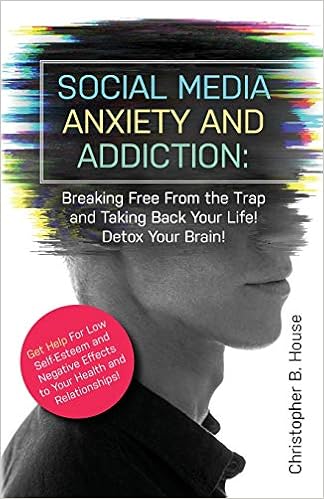
Social Media Anxiety and Addiction, by Christopher B. House (2021)
Do you often feel as if you are missing out on the so-called social media moments? Do you constantly focus on being photo-ready or get worried if a day passes without you being online-having nothing to show, like, or comment on? Do you hold clout in high regard? If your answer to all these questions is ‘yes,’ then you will likely spend too much time on social media.
However, Social Media Anxiety and Addiction will help you differentiate between a healthy dose of social media presence and addiction/overdose.
I particularly loved how Christopher provides research that delves into the psychological, emotional, and physical, social media addiction impacts and how to step back from over-connection.
This book is for you if you constantly get social media separation anxiety and if you are eager to learn what social media addiction means and what it is about. But most importantly, it is a practical tool if you are addicted to social media and want to regain your lost control.
It will help you detox your brain to find a moment of clarity, freedom, and mental peace. Social media is a potentially harmful tool to mental health and overall well-being if you obsess over it as a source of self-esteem. But the insights in this book will help you conquer its idealized version.
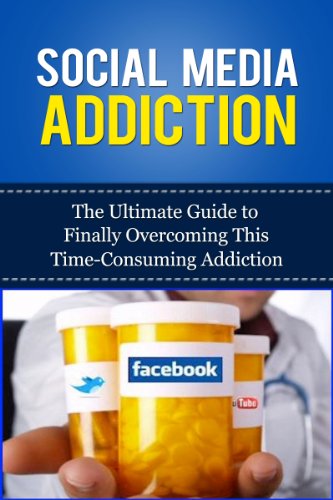
Social Media Addiction, by Caesar Lincoln (2013)
Life on social media is full of highlights and making sure you sell out on having a fun and exciting life. But it is time to take a step back if you find yourself constantly worrying and comparing yourself to these highlights.
Social Media Addiction was relatable to me, and I hope it will be so to you with its practical and applicable ways to deal with and cure this addiction. The book has helpful suggestions to help you triumph. In it, Caesar shows the downfalls of social media and how more reliant we are on faux than actual/honest communication and life issues. He also further illustrates how you can use media to your benefit while living an authentic and not virtual reality.
This book is for you to differentiate the blurred line between real and fake ‘living. It has helped me find social media freedom as a young adult.
Caesar makes reading this book a pleasure rather than a reading chore. It is short and straight to the point, with a sound and straightforward strategy to follow.
Final Thoughts about Books on Social Media Addiction
How To Heal From Light Social Media Addiction?
Based on my own experiences there are some practical tips that may help you to free from social media addiction:
- Would you like to drastically reduce Facebook time? Delete it from your start screen. Later if you want to open it, you will need to search the app in the all app screen. This trick reduced my Facebook time with almost 90%
- No smartphone times. Pick several hours in your week especially on the weekend, when you simply put your phone in a box. Watch a new big screen movie, read a great chick-lit book, or simply do something you were always interested in
- If you do sports, gym, whatever physical activity. Never pick up your phone to check “something”
- Monitoring your smartphone activity will only frustrate you over time, instead of checking how much time you spent with social media try to pick up new valuable habits, to reach long lasting social media free results
Further Thoughts
We live in a time where a lot of value is based on our views, comments, and followers. But, obsessing over social media engagement will only lead to a decline in an aspect of life. Be it declined self-confidence, lowered self-esteem, feeling like you don’t belong, or ignored responsibilities.
But it doesn’t have to be this way. Moderating your social media usage is the way to go, and it is worth it. It will improve many other aspects of your life and relationships. Trust me. You don't need social media dopamine to live fully. Instant gratification is overrated.
Social media addiction can lead you into a rabbit hole if you don't take the necessary remedies.
So, get there with any of the social media addiction books I have recommended above and overcome the struggle. They have helped me break free from digital bondage and can help you too.
If you are interested in this topic, than check also our article connected to smartphone addiction.
My profession is online marketing and development (10+ years experience), check my latest mobile app called Upcoming or my Chrome extensions for ChatGPT. But my real passion is reading books both fiction and non-fiction. I have several favorite authors like James Redfield or Daniel Keyes. If I read a book I always want to find the best part of it, every book has its unique value.







